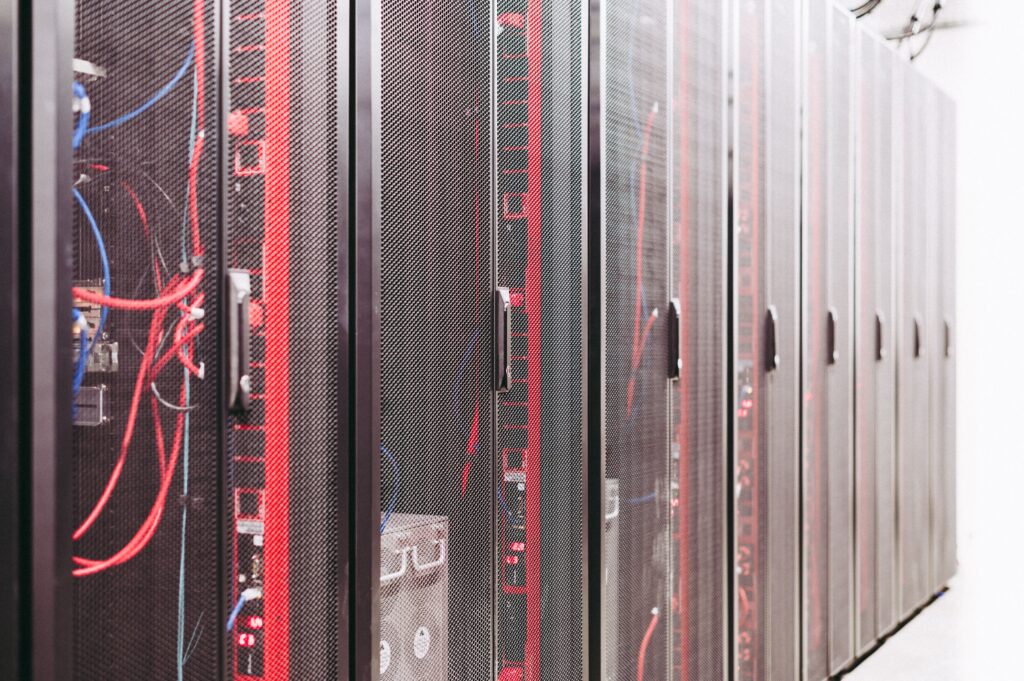The Role of a DevOps Engineer: Navigating the Confluence of Development and Operations
In the ever-evolving landscape of software development and IT operations, the role of a DevOps engineer has emerged as a pivotal and transformative position. DevOps, a portmanteau of “development” and “operations,” embodies a cultural shift that emphasizes collaboration, communication, and automation between software developers and IT professionals. This article delves into the intricacies of the DevOps engineer role, providing a comprehensive overview of their responsibilities, the path to becoming a DevOps engineer, and the potential career trajectories in this dynamic field. Through day-to-day examples, we’ll unravel the practical aspects of a DevOps engineer’s journey.
Understanding the DevOps Engineer Role
DevOps engineers are the bridge builders between development and operations teams. Their primary objective is to streamline the software development lifecycle, from initial code creation to deployment and maintenance. DevOps engineers foster a culture of continuous integration, continuous delivery (CI/CD), and automation, enabling organizations to achieve shorter development cycles, faster deployment, and higher quality software.
Responsibilities and Activities
The responsibilities of a DevOps engineer span a wide spectrum, covering areas such as automation, infrastructure provisioning, configuration management, monitoring, and collaboration. Some core activities include:
- Automated Deployment: DevOps engineers design and implement automation pipelines that ensure seamless and consistent deployment of software. Tools like Jenkins, Travis CI, и GitLab CI/CD are commonly used to orchestrate this process.
- Infrastructure as Code (IaC): Infrastructure provisioning through code, or IaC, is a fundamental DevOps practice. Engineers use tools like Terraform or CloudFormation to define and manage infrastructure resources, reducing manual setup errors and ensuring consistency.
- Configuration Management: Managing software configurations across various environments is a crucial aspect of DevOps. Tools like Ansible, Puppet, and Chef enable engineers to automate configuration tasks and maintain uniformity across systems.
- Continuous Monitoring: DevOps engineers implement monitoring solutions to track the health and performance of applications and infrastructure. Tools like Prometheus, Grafana, and ELK (Elasticsearch, Logstash, Kibana) stack are utilized to gain insights and facilitate proactive issue resolution.
- Collaboration and Communication: DevOps engineers bridge the communication gap between development and operations teams. They facilitate cross-functional collaboration, ensuring that both teams work cohesively towards common goals.
- Security and Compliance: With the increasing emphasis on security, DevOps engineers play a pivotal role in ensuring that security practices are integrated into the development process. They implement security checks, vulnerability assessments, and compliance measures.
Day-to-Day Examples
To illustrate the daily tasks of a DevOps engineer, consider the following scenarios:
- Setting Up a CI/CD Pipeline: A DevOps engineer is tasked with creating a CI/CD pipeline for a new microservice. They configure a pipeline using Jenkins, which automatically builds, tests, and deploys the code to a staging environment whenever changes are pushed to the repository. This automation reduces manual intervention and accelerates the feedback loop.
- Infrastructure Scaling: As a new feature gains popularity, the demand on the application’s infrastructure increases. The DevOps engineer utilizes IaC tools like Terraform to provision additional servers in the cloud environment, ensuring that the application can handle the increased load.
- Configuration Management: The team needs to update the configuration of multiple servers to incorporate a new security policy. Instead of manually applying changes to each server, the DevOps engineer uses Ansible to define the desired configuration state and deploys the changes across all servers simultaneously.
- Monitoring and Alerting: The engineer sets up monitoring using Prometheus and Grafana to track the application’s performance. They configure alerts to notify the team if response times exceed a predefined threshold, ensuring prompt identification and resolution of performance issues.
Becoming a DevOps Engineer: Navigating the Path
The journey to becoming a DevOps engineer requires a combination of technical skills, soft skills, and a deep understanding of the DevOps philosophy. While there’s no fixed path, certain steps can guide aspiring individuals towards this role.
1. Develop Technical Proficiency
DevOps engineers need a solid foundation in various technical domains:
- Version Control: Gain expertise in using version control systems like Git to manage codebase changes effectively.
- Scripting and Programming: Familiarize yourself with scripting languages (e.g., Python, Bash) and programming languages (e.g., Java, Ruby) to automate tasks and build tools.
- Cloud Platforms: Acquire knowledge of popular cloud platforms (e.g., AWS, Azure, GCP) to provision and manage resources.
- Automation Tools: Learn configuration management and automation tools (e.g., Ansible, Chef, Puppet) to streamline deployment and management tasks.
- CI/CD Tools: Gain hands-on experience with CI/CD tools like Jenkins, Travis CI, и GitLab CI/CD to create automated pipelines.
- Containerization: Understand containerization concepts and tools like Docker, Kubernetes, and Docker Compose for deploying and orchestrating applications.
2. Embrace Collaboration and Soft Skills
DevOps engineers play a pivotal role in fostering collaboration between development and operations teams. Developing strong soft skills is essential:
- Коммуникация: Effective communication ensures that both technical and non-technical stakeholders understand the DevOps processes and benefits.
- Решение проблем: DevOps engineers need to troubleshoot complex issues and devise efficient solutions under pressure.
- Adaptability: The DevOps landscape evolves rapidly. Being adaptable and open to new tools and practices is crucial.
- Empathy: Understanding the challenges faced by both development and operations teams helps in creating effective solutions.
3. Gain Practical Experience
Practical experience is invaluable for a DevOps engineer:
- Personal Projects: Contribute to open-source projects, build personal projects, or automate everyday tasks to hone your skills.
- Internships and Entry-Level Roles: Entry-level positions in IT, development, or operations departments provide hands-on experience.
- Сертификаты: Consider certifications such as AWS Certified DevOps Engineer, Certified Kubernetes Administrator, or Certified Jenkins Engineer to validate your skills.
4. Continuous Learning
The DevOps landscape is ever-changing, requiring continuous learning:
- Stay Updated: Regularly follow DevOps blogs, podcasts, and attend conferences to stay informed about the latest trends and practices.
- Experimentation: Create sandbox environments to experiment with new tools and practices without affecting production systems.
Career Paths and Trajectories in DevOps
DevOps engineering offers a diverse range of career paths that can cater to individual preferences and strengths. Here are some potential trajectories:
1. DevOps Engineer
The traditional path involves starting as a DevOps engineer, gaining expertise in automation, deployment, and infrastructure management. DevOps engineers contribute to CI/CD pipelines, manage infrastructure as code, and drive cultural changes within organizations.
2. Site Reliability Engineer (SRE)
SREs focus on ensuring the reliability, availability, and performance of systems and applications. They use a combination of software engineering and operations skills to design scalable, fault-tolerant systems.
3. DevOps Architect
DevOps architects design and implement robust DevOps solutions for organizations. They work closely with development, operations, and security teams to create tailored strategies that streamline processes and improve efficiency.
4. Cloud Engineer
With the increasing adoption of cloud technologies, cloud engineers specialize in designing, implementing, and managing cloud-based solutions. They work on optimizing cloud architecture for performance, cost, and security.
5. Security DevOps Engineer
Security DevOps engineers focus on integrating security practices into the DevOps pipeline. They implement security controls, perform vulnerability assessments, and ensure compliance with industry standards.
6. Automation Specialist
Automation specialists focus on creating and maintaining automation tools and frameworks that enhance development and operations processes. They explore innovative ways to optimize workflows and reduce manual intervention.
Conclusion
The role of a DevOps engineer encapsulates both technical mastery and interpersonal finesse. DevOps engineers wield automation, collaboration, and continuous improvement as their tools of choice to bridge the gap between development and operations. As organizations seek to accelerate software delivery without compromising on quality, DevOps engineers are poised to lead the charge towards a more efficient, collaborative, and automated software development lifecycle. The journey to becoming a DevOps engineer is a dynamic and rewarding path, characterized by perpetual learning, hands-on experimentation, and the cultivation of a holistic skill set that encompasses both technological prowess and soft skills. With their ability to navigate the confluence of development and operations, DevOps engineers are indispensable agents of change in the ever-evolving landscape of software engineering.





